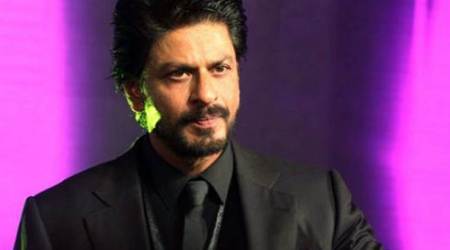 Konkona Sensharma’s A Death in the Gunj is a drama thriller, set in McCluskieganj of 1979.
Konkona Sensharma’s A Death in the Gunj is a drama thriller, set in McCluskieganj of 1979.
In her over a decade-long career, Konkona Sensharma has earned the tag of an unconventional, thinking actor for the choices she has made that include films like Mr and Mrs Iyer, 15 Park Avenue, Page 3 and Omkara. So, audience’s expectations from her are naturally higher now that she has turned director. This Friday, her directorial debut feature, A Death in the Gunj hits theatres, and Konkona talks to indianexpress.com about the freedom she experiences being a director and also the struggles that come along with the job.
A Death in the Gunj is a drama thriller, set in McCluskieganj of 1979. It stars an ensemble cast of Ranvir Shorey, Kalki Koechlin, Vikrant Massey and late Om Puri. The film’s story had stayed with Konkona since she was a child, as it was narrated to her by her father. It intrigued her enough to pick it as her maiden directorial venture.
“My parents owned a place in McCluskieganj, Bihar (now, in Jharkhand) and my grand parents lived there for some time. So, my parents in the late ’70s and ’80s when I was very small, they would go there a lot with family friends. One has heard many family anecdotes like how on that vacation this happened, that happened, the funny stories some bizarre ones. But also because that place is a remote area and it is isolated, so there’s a lot of atmosphere. So, there were some stories which were eerie and chilling also. This screenplay that I have made is based on these stories of that time, my childhood.”
Zeroing on the story was perhaps a quick decision for Konkona this is one tale she knew “she wanted to share with everyone,” but what did take long was selling her conviction to outsiders in order to generate funds. A Death in the Gunj took around two-three years to be made and Konkona shares that more time went into getting financiers than anything else. “I didn’t take much time to write and conceptualise the movie but getting funds took some time. I knew big, conventional studios wouldn’t take interest in a script like this. I approached them first so that I can start the process of elimination! When you don’t have a big star or name attached to your project, it becomes difficult to get funds.”
With two National Awards to her credit, several acclaimed performances over the years, shouldn’t Konkona be a name big enough to bet on. Doesn’t this bother her? “I am fine with this. This is how it works. So, it’s okay. It used to bother me initially but now it’s okay….” Her tone suggesting that she has conceded to the ways of the industry.
The parity between the status of a quality actor and a star has remained since time immemorial and Konkona doesn’t seem interested in talking about it. She interrupts as the interview veers towards her acting path, saying, “Are we talking about my acting career? There have already been two questions about it.” Nevertheless, when asked if it was difficult sticking to the kind of films she wanted to do and not getting trapped by allure of commercial cinema, she answers. “I will admit that I have done films just for money. I won’t deny that. Sometimes there has been a director I really wanted to work with, or a cast I really liked or of course the story that I loved. Then there have been times when I have done a film because it had the backing of a big studio. But every time I have done a movie, it’s because I wanted to do it.”
Going back to the subject she wants to talk about the most, A Death in the Gunj, Konkona reveals her mother, acclaimed director Aparna Sen, was involved a lot in its making. “Her inputs were there throughout. From the costumes to other aesthetics, she was involved,” the filmmaker says adding that her mother has influenced her heavily and hence there are many similarities in their sensibilities.
Being a filmmaker allows more creative control on a project and this is the best thing about the job, says Konkona. “It is liberating in some ways that you have more creative freedom, you have more control. You are not involved in just one aspect of the film, but in the whole process. So, in that sense it’s very liberating.”
A female director calling the shorts is always refreshing, but such sights are few and far between. Around the globe, female filmmakers have been heard saying that it is not easy for people to work under a woman director. Konkona, however, didn’t come across any such reluctance from her team. “I personally haven’t faced anything of that sort. Also, I like to work with people, whom I can get best out of and who can get the best out of me. So, I choose people according to that.”

